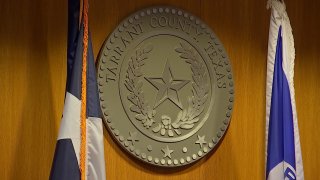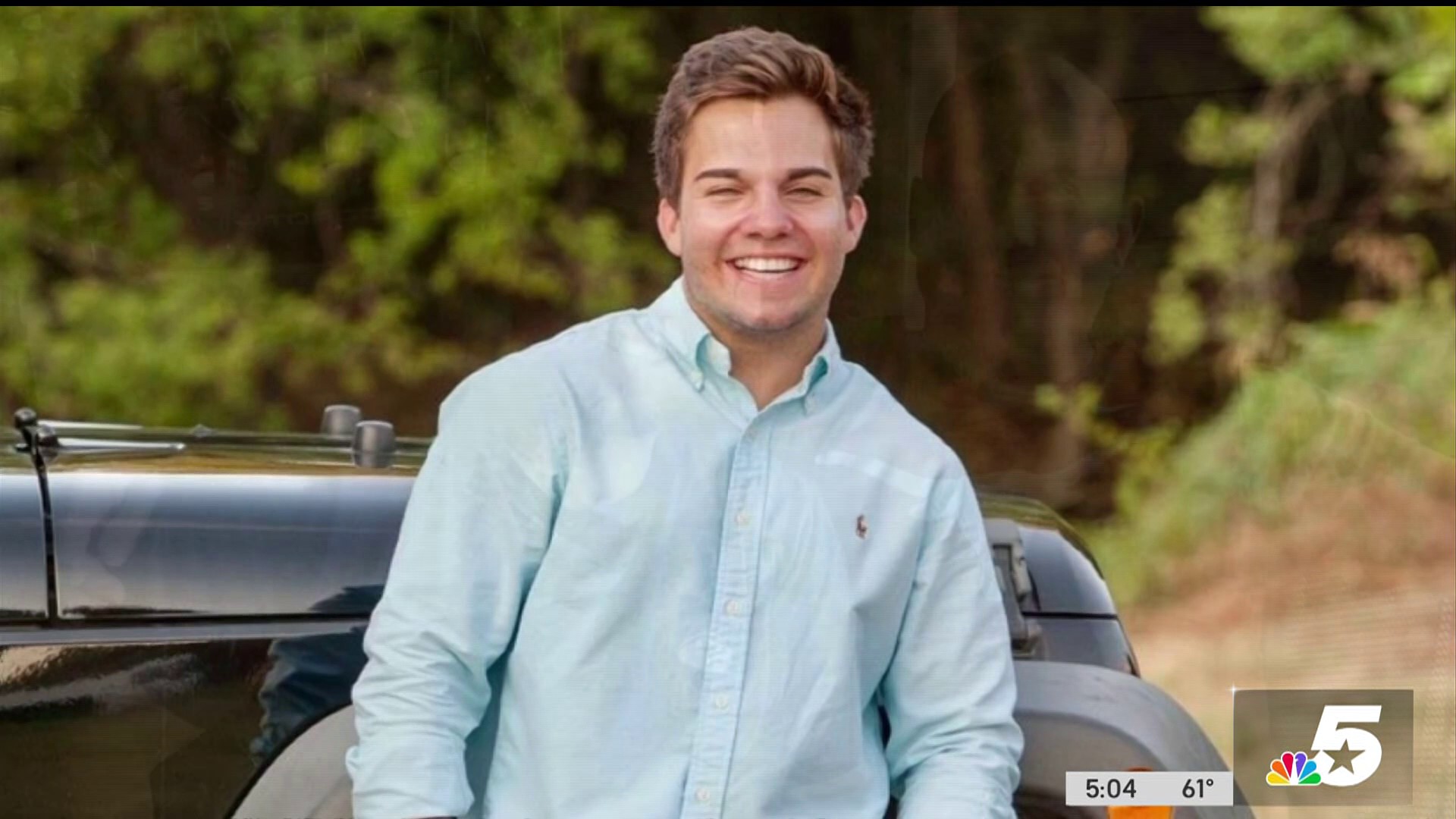
Tarrant County has its first conviction under a new law that allows prosecutors to seek murder charges in fentanyl-related deaths.
Kaeden Farish, 19, pled guilty to murder and was sentenced to 19 years in prison on Thursday, Oct. 24.
Back in January, Farish sold fentanyl-laced pills to a 17-year-old who died of an overdose.
The Tarrant County Criminal District Attorney Phil Sorrells said that this new law applies to individuals who either made or dealt the fentanyl that caused a death.
Get top local stories in DFW delivered to you every morning. >Sign up for NBC DFW's News Headlines newsletter.
"We will continue to go after those who seek to profit from this deadly drug," Sorrells said. "You make it or deal it to someone who dies, we'll charge you with murder."
Fentanyl is a synthetic opioid sold in different forms, such as powder, pills, nasal sprays, or even eye drops. Since it is cheaper to manufacture, some dealers substitute it for other substances.
"We are working hard to get the people who sell this poison off the streets," Sorrells said.
FENTANYL DEATHS
WHAT IS FENTANYL?
Fentanyl is a synthetic opioid that is 50 times more potent than heroin and 100 times more potent than morphine. Just two milligrams of fentanyl, which is equal to 10-15 grains of table salt, is considered a lethal dose.
Without laboratory testing, there is no way to know how much fentanyl is concentrated in a pill or powder. If you encounter fentanyl in any form, do not handle it and call 911 immediately.
Fentanyl remains the deadliest drug threat facing this country. According to the Centers for Disease Control and Prevention, 107,622 Americans died of drug overdoses in 2021, with 66% of those deaths related to synthetic opioids like fentanyl.
Drug poisonings are the leading killer of Americans between the ages of 18 and 45. Fentanyl available in the United States is primarily supplied by two criminal drug networks, the Sinaloa Cartel and the Jalisco New Generation Cartel (CJNG).
WHAT IS RAINBOW FENTANYL?
In August 2022 the Drug Enforcement Administration issued a public advisory about the alarming emerging trend of colorful fentanyl available nationwide.
Brightly-colored fentanyl, dubbed "rainbow fentanyl" in the media, is being seized in multiple forms, including pills, powder, and blocks that resemble sidewalk chalk.
“Rainbow fentanyl—fentanyl pills and powder that come in a variety of bright colors, shapes, and sizes—is a deliberate effort by drug traffickers to drive addiction amongst kids and young adults,” said DEA Administrator Anne Milgram. “The men and women of the DEA are relentlessly working to stop the trafficking of rainbow fentanyl and defeat the Mexican drug cartels that are responsible for the vast majority of the fentanyl that is being trafficked in the United States.”
Despite claims that certain colors may be more potent than others, there is no indication through DEA’s laboratory testing that this is the case. The DEA said every color, shape, and size of fentanyl should be considered extremely dangerous.
WHAT IS NARCAN?
Narcan is an over-the-counter prepackaged nasal spray containing naloxone hydrochloride which is an opioid antagonist that rapidly reverses an opioid overdose, but only temporarily.
According to the manufacturer, "Narcan nasal spray is a prescription medicine used for the treatment of a known or suspected opioid overdose emergency with signs of breathing problems and severe sleepiness or not being able to respond."
According to the Substance Abuse and Mental Health Services Administration, naloxone is an FDA-approved medication that is used to reverse an opioid overdose.
SAMHSA said because naloxone is a temporary treatment its effects do not last long and it's critical to obtain medical intervention as soon as possible after administering or receiving naloxone.
WHAT IS NALOXONE?
According to the National Institutes of Health's National Institute on Drug Abuse, naloxone is a medicine that can rapidly reverse an opioid overdose by attaching itself to opioid receptors and either reversing or blocking the effects of opioids.
"Naloxone can quickly restore normal breathing to a person if their breathing has slowed or stopped because of an opioid overdose. But, naloxone has no effect on someone who does not have opioids in their system, and it is not a treatment for opioid use disorder. Examples of opioids include heroin, fentanyl, oxycodone (OxyContin), hydrocodone (Vicodin), codeine, and morphine.
Naloxone comes in two FDA-approved forms, injectable and as a nasal spray.
Naloxone works for only 30 to 90 minutes and many opioids remain in the body longer than that. It is possible for a person to still experience the effects of an overdose after a dose of naloxone wears off so it's imperative to call 911 or get the overdosing person medical attention as soon as possible after the dose is administered.
The U.S. Food and Drug Administration on March 29, 2023, approved selling naloxone without a prescription, setting the overdose-reversing drug on course to become the first opioid treatment drug to be sold over the counter.
A different drug, Opvee (nalmefene) is also an emergency nasal spray medication used to reverse an opioid overdose. Opvee, however, is not approved for over-the-counter use and can only be obtained with a prescription. Nalmefene stays in the body longer than naloxone and may be more effective for overdoses caused by long-acting opioids but it also may come with more opioid withdrawal symptoms.
DOES THE FDA APPROVAL MEAN I CAN BUY NARCAN AT CVS OR WALGREENS?
Yes. Narcan is currently available over-the-counter at pharmacies.
Other brands of nasal sprays (RiVive) and injectables may also soon be available over the counter.



